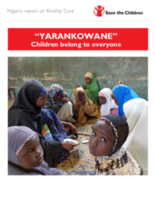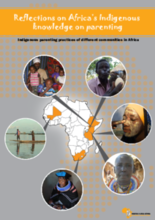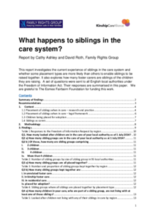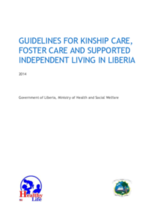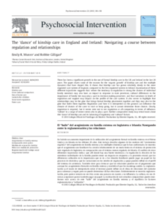Displaying 441 - 450 of 608
This issue brief from the UNHCR highlights key messages from UNHCR in regards to alternative care, including the importance of making alternative care arrangements based on the best interests of the child and using residential or institutional care only as a very last resort.
This report is based on a synthesis of eight assessments of the implementation of the Guidelines for the Alternative Care of Children (“the Guidelines”) in Benin, Gambia, Kenya, Malawi, Tanzania, Togo, Zambia and Zimbabwe.
This study was undertaken to build knowledge on alternative care practices, especially informal kinship care, prevalent in the West and Central Africa.
This publication, produced by the Parenting in Africa Network (PAN), highlights the skillful parenting practices of several pastoral communities in Africa.
This animated video, produced by Save the Children, tells the story of Suman, a boy whose mother sends him to a care center as she is having difficulty caring for him.
This report investigates the current experience of siblings in the care system in the UK and whether some placement types are more likely than others to enable siblings to be
raised together.
This book explores the legal and human rights dimensions of kinship care, the preferred alternative to parental care in the African context.
The Guidelines for Kinship Care, Foster Care and Supported Independent Living in Liberia are intended to provide harmonized national guidance for child welfare practitioners in order to improve the quality of family-based alternative care services in Liberia, particularly for children without appropriate care (CWAC).
There has been a significant growth in the use of formal kinship care in the UK and Ireland in the last 20 years. The paper charts some of the reasons for the 'organic growth' of kinship care and the multiple dynamics that have shaped this.
This Handbook aims to provide guidance for Save the Children staff, NGO partners, Community Child Protection Groups and community volunteers in Myanmar in protecting the welfare of children living with extended family members.


